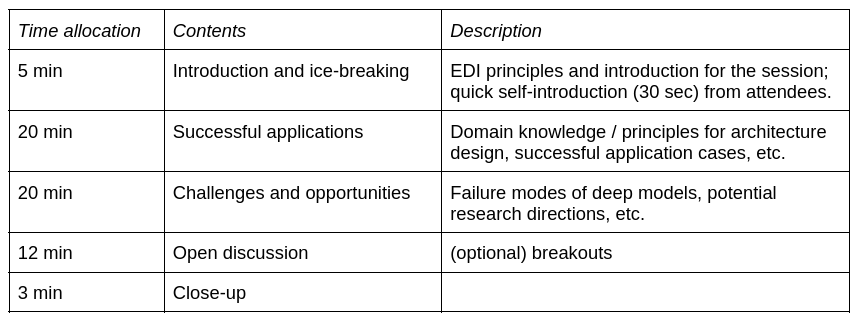

2022 ICML WiML Un-workshop Breakout: Machine Learning for Physical Sciences
Introduction
Machine learning techniques have been adopted for data selection, data simulation, and model inference in physical sciences [1] including high energy physics, astrophysics, molecular physics, etc. Deep neural networks are employed to probe the fundamental structure of elementary particles at the Large Hadron Collider, explore the extragalactic activities with the Large Synoptic Survey Telescope, and tackle the global climate change problem. The goal of this break-out session is to bring together researchers who are applying machine learning techniques in physical sciences. The discussion will be focused on exchanging experiences, and forging communication and collaboration. Especially, as an interdisciplinary research area, there are special challenges for female researchers. Physical sciences have long been notorious for the gender gap. We would like to take this opportunity to pave for further support programs such as mentor-mentee matching.
Agenda
Date: July 18, 3:25 pm EDT
:point_right: Zoom Meeting Room

Topics
- Successful applications: domain-specific architectures, generative modelling, etc.
- Challenges and opportunities: when do deep models fail? What are the obstacles in the workflow?
- As women researchers, what obstacles did you face? What support would you like to have in order to advance your careers?
Community Development
:point_right: Join WiML-ML4PS Google Group
:point_right: Join WiML-ML4PS Slack
References
[1] Carleo, Giuseppe, et al. “Machine learning and the physical sciences.” Reviews of Modern Physics 91.4 (2019): 045002.
[2] https://github.com/taolicheng/DL4Physics
Code of Conduct
- EDI (Equity, Diversity, and Inclusion) Principles: respect, collegiality, and social justice.
- WiML Code of Conduct